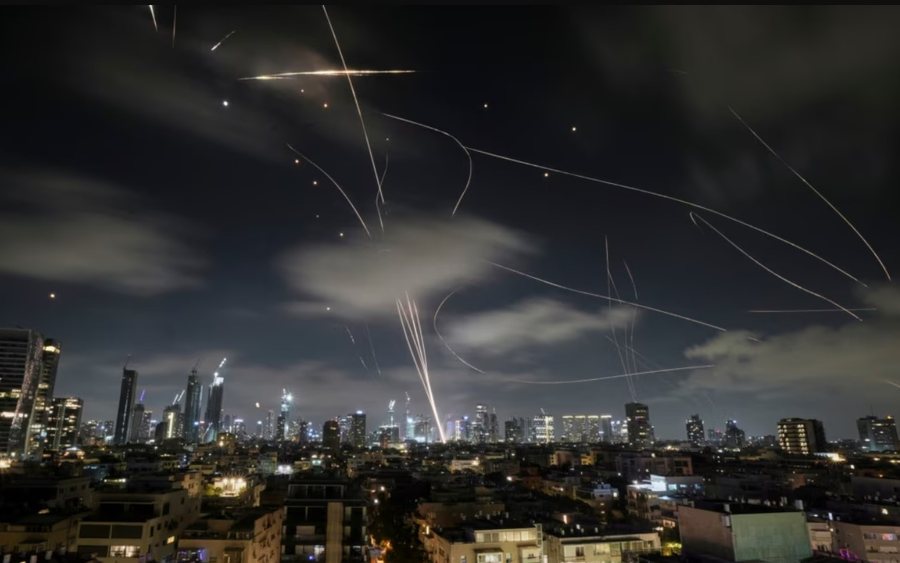
Despite the ongoing fighting with Israel, the shelves in many supermarkets in Tehran continue to be filled with supplies.
"There is no one to buy things," Mahsa, a resident of a western neighborhood of the Iranian capital, explains to Radio Free Europe.
She estimates that 60-70 percent of her neighborhood's usually lively residents have fled as a result of Israeli bombings of Iran, A2 reports.
The supermarket in her neighborhood, which usually stays open until midnight, now closes around 9:00 p.m. due to a lack of customers.
On streets where she once had to drive several laps to find a parking space, Mahsa says that today "there are only two or three cars on my street; it's a bit scary and very sad."
The few remaining residents are mostly staying home, and most businesses are now closed.
On the street, "the very air you breathe is sad," says Mahsa.
Many Tehran residents have headed north, to the Caspian Sea coast, which is a traditional vacation spot for people from the Iranian capital.
Mahsa, who asked REL not to mention her last name for security reasons, has chosen to stay and face whatever happens.
She says that when the Israeli attacks began on June 13, "I was very shocked. I only managed to fill a bag with the most sensitive and essential things for me."
But, although friends and relatives urged her to leave the capital, she says: "I said, 'Oh God, I don't want to leave my home.'"
In her area of Tehran, known as a favorite hangout for young people, she believes there are no military targets.
"I am very convinced in my heart that [the Israelis] will not just destroy people's homes for no reason," she says.
More than 500 people are said to have been killed in Iran by Israeli attacks since June 13. Photos captured by photojournalists in Tehran show people seriously injured, including children, after the attacks in the capital.
"Israel and America are our enemies," Mahsa says. "But it's like I trust them more than my government. This is a very bad situation."
She adds that, in her circle of middle-class Iranians, most hope that the conflict will lead to the overthrow of the Iranian regime, mainly due to the dire economic situation.
Since the COVID-19 pandemic, she says, costs have increased so much that "you have nothing, you can't plan anything, not even a small day trip."
According to her, even the simplest foods are increasingly inaccessible to ordinary residents of Tehran.
"For example, if you've always had something like olives in your kitchen, now you can't have them," she says. "Then, you have them once a month, then once a year, and then you have to cut them out of your life altogether."
"These days, people here in Iran, most of them, meaning ordinary people, like me, middle class, have money only to eat and travel from one place to another within the city," she adds.
"When you stay in this state for two or three years, you become hopeless, you just think: what am I doing? We all know that everything can be very difficult after this [conflict], but we have this hope, even if it is very small, that something can change," she emphasizes.
In Israel, journalist Nicole Jansezian pauses while speaking on REL to check an Iranian missile warning. After learning that the warning does not affect the area near her family's Jerusalem home, she continues speaking.
Jansezian compares life in Israel today to COVID lockdowns.
"Schools are closed, as are workplaces and entertainment venues like restaurants, gyms, etc.," she says.
She documents daily life under Iranian missiles and tells REL that she believes there is widespread support, at least among Jewish Israelis, for the attacks on Iran, which the Israeli military has dubbed "Operation Roaring Lion."
However, she says that public support could waver if civilian casualties in Israel continue to mount. Twenty-four people have been killed in Israel since Iran began its missile and drone attacks.
"Running to shelters in the middle of the day, in the middle of the night, and not having any routine, is something that Israelis don't have much patience for," she adds.
While the conflict with Iran continues to dominate headlines, she says the Israeli hostages kidnapped by Hamas during the October 7, 2023 attacks have disappeared from the news, "which is really disappointing for their families."
Although he emphasizes that no one has had time to fully gauge public opinion, Jansezian says he thinks most Israelis hope that attacks on Iran will bring about the end of the Islamic regime in Tehran.
Israelis "really feel like the Iranian people are for us, and we are for them," the journalist says, referring to protests in Israel in support of the "Women, Life, Freedom" protest movement in 2022.
"I think the Israelis believe, and maybe the Iranian people too, that they have a common enemy - that the enemy of Israel and the enemy of the Iranian people is the Iranian regime," she adds. "And so they really hope for an end to it."/ REL (A2 Televizion)











